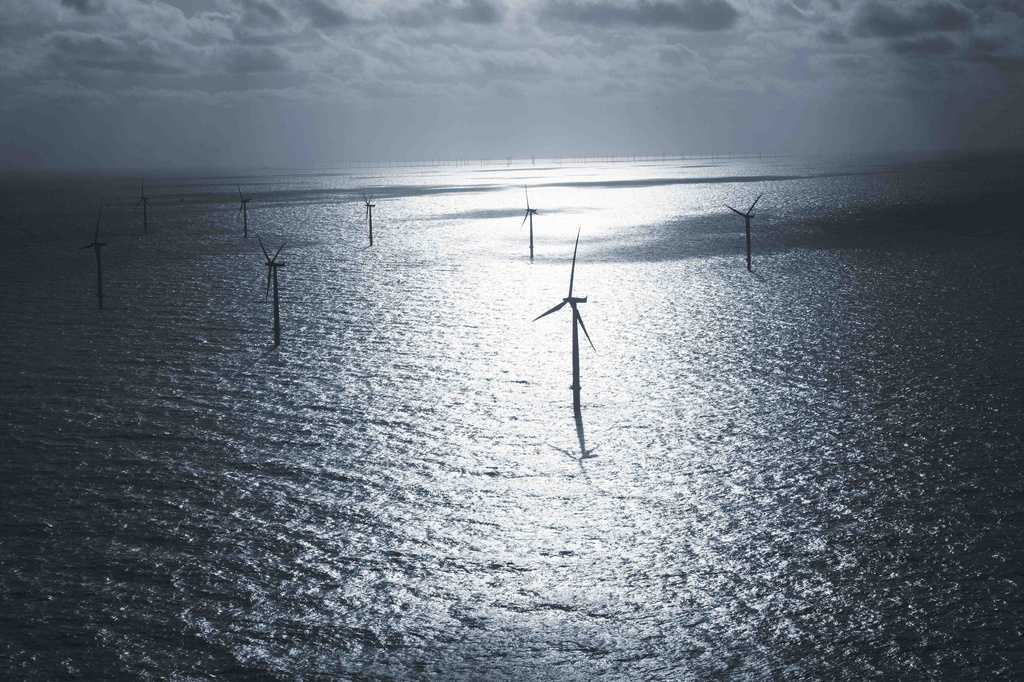Swiss move in to help quench China’s thirst

Swiss industry has launched an effort to assist China in managing its water resources. Water shortages and pollution are a major environmental challenge for Beijing.
Ma Jianguo has a gap-toothed but friendly smile. The 71-year-old peasant farmer and his wife have lived all their lives in a village in Hebei province, about one hundred kilometres north of Beijing.
Ma doesn’t plan on retiring, since he draws no pension and says he gets by with an annual salary of about SFr800. However, he is a contented man.
“Life is much better than it was at the time of the people’s communes or the Cultural Revolution”, he says. But he still has a big problem: “It never rains!”
His village lacks water. To irrigate the land, the peasants have to dig deeper and deeper, more than 100 metres. Every year the pumps work harder, and the electricity bills mount.
Paradoxically, the village is situated right beside the Guanting reservoir, an enormous artificial lake whose blue waves tantalise the peasants.
“We are not allowed to take water from the reservoir,” they explain. This water is exclusively intended for the city of Beijing, even though the reservoir lies within the territory of Hebei.
Colossal task
To the south of the village there is nothing but a desert. The wind brings the sands of inner Mongolia, which accumulate into immense dunes, only a stone’s throw from the nation’s capital. This place illustrates the many challenges China faces in managing its water: drought, desertification, unfair distribution, pollution (the waters of the reservoir are of poor quality). With over 21 per cent of the world’s population, but less than seven per cent of the water resources of the planet, the task is a colossal one.
Switzerland has the opportunity to put its expertise in this field to use. Some Swiss industries are already on the ground, and others are starting out to try and conquer this immense market. At the initiative of the Swiss-Chinese Chamber of Commerce, a forum was held in April in Beijing to promote Swiss expertise. Five Swiss companies presented their products. So, how do they rate their chances of establishing a foothold in China?
“It’s a start,” said Lars Willi, head of Trunz Water Systems, a young St Gallen company which offer solar installations for water treatment geared to small village communities.
“This is our first foray in China. We were able to meet the deputy minister for water resources, and two or three participants at the forum seemed interested,” says Willi, who could see his products equipping isolated villages in Tibet, Mongolia, “in the mountains or on islands”.
Quality competition
Zurich-based Angst + Pfister – in China since 2006 – supply tubes, pipes and joints of European manufacture all around China. Jenny Jin, who heads up their China operation, recognises that indigenous competition is tough.
“Chinese quality is improving a great deal – they are making a lot of effort so as to be able to meet European standards.”
But as regards production costs, “high-quality Chinese products are not much cheaper. Our big disadvantage is import duties. I hope the Free Trade Agreement [between China and Switzerland] will soon be in place. Then we will be able to operate in a climate of fair competition.”
“Our competitors are getting better year after year. It’s nothing like what they were doing ten years ago. But we still have a head start because of the quality of our service,” said David Chua, director of Hilti China. The Liechtenstein group offers solutions for maintenance and expansion of water purification stations.
ABB has a major presence in China. Its director for the water market, Surendra Muppana, thinks that Swiss products, such as electric motors, are more efficient than the Chinese models. “They may be more expensive to buy, but over a ten-year period you gain a lot because the operating costs are a lot less.”
Another Swiss company presenting its products at the forum was the Ticino-based start-up Hydroswiss. It provides small water purification stations for communities of 2,000 to 20,000 inhabitants. There again, the same observation is heard. “Yes, we are expensive,” admitted Roberto Colosio, president of Hydroswiss.
He noted that while country areas still lack the means to afford his products, the cities seem to be getting interested. And with new Chinese legislation on water conservation, rural villages too will end up wanting this type of facility.
The Chinese government is promising to solve problems of access to drinking water for 300 million inhabitants of rural areas in its five-year plan for 2011-2015.
It declares that by 2015, 80% of the rural population will have access to “potable” water, while exhorting local governments to improve the quality of what they call potable water, now often rated as poor in quality.
The twelfth plan announces investments worth SFr490 billion in water treatment, irrigation systems and flow control projects. Today, only half of urban waste water is reprocessed.
In 2009, the-then Swiss energy minister, Moritz Leuenberger, signed an accord on water management with the Chinese minister of water resources, Chen Lei. This aimed to formalise and deepen the existing cooperation between the two countries in the area of water management.
In February 2012, current Energy Minister Doris Leuthard invited Chen Lei to expand this cooperation, especially in the area of risk management related to natural hazards, monitoring and safety of dams and protection against flooding. China has used the example of Swiss law on management of water resources for its own legislation.
(Translated from French by Terence MacNamee)

In compliance with the JTI standards
More: SWI swissinfo.ch certified by the Journalism Trust Initiative













You can find an overview of ongoing debates with our journalists here . Please join us!
If you want to start a conversation about a topic raised in this article or want to report factual errors, email us at english@swissinfo.ch.